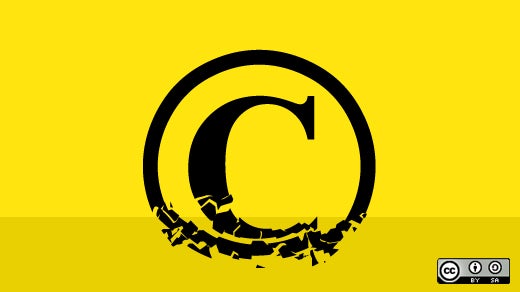- Software is protected by copyright law in the U.S. and many other countries.
- Anyone that wrote the software, owns the copyright and can say how it is used. [NOT saying how it can be used does NOT remove your responsibility as the owner, even if you don't care.]
- People sometimes give up their copyright ownership to the software they write in their employment agreements. [If you didn't read your employment agreement, you're probably not a professional software developer.]
- If you want to liberally share your software with others so they can use it for anything, there are a few well-accepted SIMPLE licenses (Apache 2.0, BSD, MIT). These essentially say:
- Do whatever you want with the software.
- Don't claim my work as your own.
- Do give me credit for my work.
- THIS SOFTWARE COMES WITH NO WARRANTIES, USE AT YOUR OWN RISK, [ALL IN CAPITAL LETTERS BECAUSE WE REALLY REALLY MEAN IT].
It takes about two minutes each to read the Apache 2.0, Berkeley, and MIT licenses. Pick one. They are good enough for one of the most successful collaborations we have witnessed in the short history of software development, and for two institutions for higher learning recognized for their contributions to computer and software technology. These licenses were written by lawyers that understood software copyright law and liberally sharing software. Apache Software Foundation projects are powering the growing business ecosystems of cloud computing, and have successfully powered the rise of the web for 15 years. No lawyer you hire will do better.
If you live on GitHub, it will take you less time than reading this post to visit the appropriate OSI URL, copy the text, and paste it into a LICENSE file in the top of the tree with the appropriate minor edits for date and project name.
If you care about software freedom, then you are admitting you have already probably read more on the topic than the average developer, and can go refresh yourself on the excellent Free Software Foundation essays, re-read the GNU licenses, and choose appropriately.
If you are trying to "make money" from your software, then you are admitting you need to involve a lawyer in your business, or spend enough time educating yourself on the business tools available in your chosen profession. A very good reference for developers is Van Lindberg's Intellectual Property and Open Source.
If you think you need an opinion on software patents, re-read the previous paragraph.
That's it. There's the two minute course. If you read quickly, it was over faster.
Any other discussion is window-dressing or whining, and just plain unprofessional if you write software for a living or for other people to use. If you want folks to use your software, license your work. Writers do it. Artists do it. Engineers and architects do it. So should you.
Originally posted on the Outercurve blog. Reposted with permission.







5 Comments